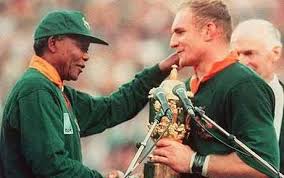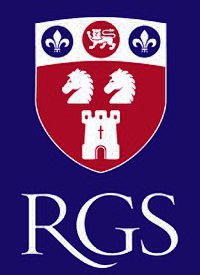 There are different ways to do a sports tour. One is to isolate yourself, think nothing of where you are, or the people you are with. That’s not what this tour is about.
There are different ways to do a sports tour. One is to isolate yourself, think nothing of where you are, or the people you are with. That’s not what this tour is about.
It is, of course, about sport. We are going to one of the most sports-mad countries of the lot. The hockey and Rugby will be very competitive, and South Africans play to win. In particular, Rugby is something akin to a national religion, especially for South Africa’s white Afrikaans. To play sport in another country is always to experience something different. But it is more than just playing. It is also people and places. And the people and places we will come across in South Africa will teach us a lot: about their country, their people and their country. I would say this, being a history teacher, but to get the most out of what we are going to see, and do, we need a bit of history.
Coincidentally, Wednesday 18th July is Nelson Mandela’s 100th birthday. Mandela, as leader of the African National Congress, was president of South Africa from 1994-99. From 1962-1990, he had been, in effect a political prisoner, spending 18 of those years as a prisoner on Robben Island (which we will visit next Tuesday). Mandela’s real crime, in the eyes of the government, was to demand full political and civil rights for all South Africans.
The regime that the likes of Mandela fought against was dominated by South Africa’s National Party, that instituted a system know as Apartheid. In theory, it allowed for what the regime called ‘separate development’. Each ‘national group’ in South Africa had its own homeland, and its own citizenship. It was a polite fiction that failed to cover up a brutal truth. The majority of South Africans were in effect denied citizenship, systematically discriminated against and brutally oppressed. Put simply, whites won and everyone else lost.
But it is not as simple as black and white. South Africa has a population of about 60 million (similar to the UK). But it is a population of amazing diversity. South Africa has eleven official languages. About 9% of its population are white. Until 1990, those whites dominated South African politics and society; the socio-economic divides along racial lines are both still wide and profound.
All of those legacies are things we will come across as we travel, play and meet people. As we do, I hope to be able to shed light on some of those aspects. I also hope to give the folk on tour, and the folk at home a flavour of what we do, and what we all experience..
Back to sport. Well, in this case, Rugby. As I mentioned, Rugby is something of a national religion and that this particularly applies to Afrikanerdom. For Rugby fans from these islands, there is also the history of the two great Lions’ victories. In 1997, Martin Johnson led the Lions to a series victory. In 1974, Willie John McBride led an undefeated Lions to their greatest victory of them all.
That tour was deeply controversial. Many felt it should never have happened: by touring South Africa, the Lions were giving succour to Apartheid. In 1990, Nelson Mandela was released from prison and the process began that brought about the end of Apartheid and the establishment of South African democracy. In that light, South Africa, having been boycotted by all the major Rugby nations by the late ‘eighties, was given the Rugby World Cup in 1995. By then, Mandela was president. Fate dictated that South Africa would win. For the final, Mandela wore the Springbok shirt that had, for so long, been the emblem of Afrikaner South Africa. The Springboks’ Afrikaner captain, François Pienaar, took the cup from him with a touch that spoke a million words.
The Rainbow nation was born. That nation has had, and has it problems: some of which we will encounter. But, it also has great life, vibrancy and hope. I hope the young men and women will find themselves challenged on the pitch and off, but also enthralled, excited and humbled.
So, ladies and gentlemen, enjoy the ride…
